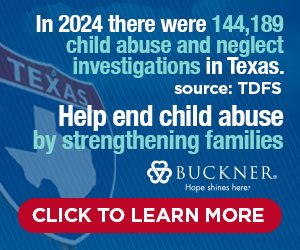In Part 1, I shared two reasons pastors are dying, quitting and burning out. Here, I will share two more reasons, followed by my thoughts for keeping pastors alive and ministering well.
Unlimited accessibility
There are exceptions, but almost every night I am messaged by at least one person: “Hey, Steve. Sorry to bother you, but I need to talk to someone.”
I count this as a divine and holy privilege. Over the years, I have counseled individuals through marital issues, suicidal thoughts, addictions, abusive situations and any number of other situations over the phone—both calls and texts.
Now, that is expanded to social media. I have fielded questions through Facebook, Twitter and Instagram.
To be clear: I love doing this. Also to be clear: This sometimes is overwhelming.
When a suicidal person messages you during family game night, do you answer? When the man who has been teetering at the edge of addiction and infidelity reaches out to you while you are on family vacation, do you respond?
The advent of the Internet means anyone from my past can find me. And they do. Friends from high school and college reach out. The portability of cell phone numbers means those who had my number in 2005 have my number today. I have pastored hundreds of different individuals during that season. And they all have immediate access.
You might see how some 21st century pastors often feel overwhelmed by the relational demand.
Political divisiveness
I am not the first person to note that our world is divided sharply along political lines, especially in recent days. This hyper-politicization means pastors sometimes find themselves making proclamations that are thoroughly biblical, yet under scrutiny.
Sign up for our weekly edition and get all our headlines in your inbox on Thursdays
In the last decade or so, I have had people ask me why I was getting political after mentioning we should care more about poor children. The Bible clearly says God defends the cause of the poor. I have had people wonder why I was being political when I spoke out regarding race. The Bible clearly says God has created all people in his image and that he desires the redemption of all nations. I have had people ask me why I was being political when I said we should love refugees. The Bible clearly says we should love the sojourner. You can add any number of issues to the previous mentions: abortion, sexuality, etc.
Issues once considered “biblical” now regularly are categorized as too “political.” This creates a tension in the act of preaching that, in my opinion, is not healthy.
It always is uncomfortable to tell the truth. But I think our hyper-politicized society makes many issues controversial that have complete biblical grounding.
As Eugene Peterson said, and I’m paraphrasing here, “The kingdom of God is more political than anyone believes, but in a way no one expects.”
What to do?
If you have read this far, thank you. You clearly have a heart for pastors and want to help them. So do I.
So, what should we do about these things? I don’t have any silver bullets, but I do have a few thoughts.
Counseling and therapy
Most pastors need to see a counselor regularly. Most of them don’t for a variety of reasons: fear, shame, confidentiality concerns or something else. But a person who is flailing in deep emotional waters without help eventually will drown.
I currently am seeing a counselor, and I have zero shame in that. I personally believe we need to create a norm where pastors can see a counselor and talk about doing so openly from the pulpit.
I find a large percentage of pastors are pastoring with massive wounds from the past, and those wounds prevent them from becoming personally healthy, and consequently, those wounds prevent them from helping others.
Rest
I think pastors need a regular time to “take off the pastoral hat.” I also think they need permission to turn off their phone and to not answer email.
Rhythms will vary depending on the congregation, but I can envision something like:
Sabbath seasons
Another leader—staff or other person—can take all pastoral calls. An email can be sent to the church letting them know the pastor will be unavailable during that weekend.
Or the pastor is allowed to turn off his phone on the same day every single week, likely on Saturdays.
Or some other system may make sense within a given church.
In short, the pastor needs not only to be able to get away, but the church needs to know this is good and expected from other leaders—elders, deacons, committees, etc.
Sabbaticals
I once had a sabbatical to write my doctoral dissertation. I don’t know if that counts, since I wasn’t a lead pastor at that time. But I think the rhythm of pastors having a season every seven or more years to step away for three or four months is a good idea.
I think there should be design to the sabbatical—planned readings, counseling, exercise and the like. The pastor should not simply “be out of the pulpit” but should be recharging by getting out of the weeds of day-to-day operations, in addition to getting out of the pulpit.
The goal is recreation in order to re-create the pastor’s passion for the pastorate.
Refresh
Once or twice a year—maybe on one or two of those Sabbath weekends referred to above—the pastor needs to go see old friends or family members where there is no pastoral expectation.
Pastors need to be with people who do not expect him to be “on,” who do not need a service from him. The pastor needs to be completely at ease, simply to be a person, simply to be. If he is married, he should take his wife and see old couple friends, if possible.
Relational health is only created when space for healing is carved out.
Shepherding and accountability
My experience as a pastor tells me pastors are very good at taking care of others but are not very good at taking care of themselves.
Someone—a team, a leadership council, a trusted adviser—must take on the job of intentionally shepherding the pastor.
They need to ask questions: How are you spiritually? How are you emotionally? Are you in counseling right now? Do you need to be? How are things at home? Are you having any dark thoughts?
Shepherds also need a shepherd. They need someone to reign them in when they are out of line. They need someone to speak the truth to them, in love.
I am tired of watching pastors die and quit. I am convinced we have a problem in the pastorate, and I further am convinced we must do something. I hope these thoughts help begin a conversation that will promote health, and hopefully save a life.
Steve Bezner is the pastor of Houston Northwest Church. This article is adapted from the original, which first appeared on stevebezner.com on May 28, 2020. The views expressed are those solely of the author.
















We seek to connect God’s story and God’s people around the world. To learn more about God’s story, click here.
Send comments and feedback to Eric Black, our editor. For comments to be published, please specify “letter to the editor.” Maximum length for publication is 300 words.